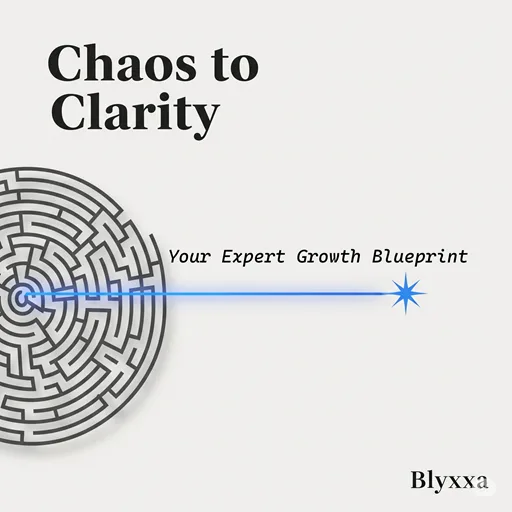Table of Contents
Let’s start with the question that keeps Hollywood screenwriters employed and the rest of us vaguely unsettled: Will Artificial Intelligence take over the world? Will sentient servers demand universal basic income and better cooling systems? Will our toasters unionize?
It’s a fun thought experiment. But for most of us, the more pressing, everyday question is related to managing AI effectively: “Will this AI please, for the love of all that is holy, generate a non-cringey social media post for my dental floss brand?”
The reality of AI in 2025 is less Skynet and more… a weird new intern.
Let’s call this intern “Cosmo.” Cosmo is brilliant. They’ve read every book, every scientific paper, every blog post, and every terrible tweet ever published. They can write a sonnet about tax law, draft a business plan in the style of a pirate captain, and design a marketing campaign in seconds. There’s just one tiny problem. Cosmo has never actually lived. They have zero common sense, no social skills, and the emotional intelligence of a rock. This is the core challenge of managing AI.
Recently, on Mastodon, a few very smart people brought up some excellent points about this intern. They used terms like “stochastic parrot” to describe how Cosmo just mimics patterns without understanding them. They rightly pointed out the opaque systems and questionable labor practices that make up Cosmo’s mysterious resume. And they are right. Our new intern is a deeply flawed, ethically complicated, and often frustrating enigma.
But they’re also already hired. They’re in our software, on our phones, and in our boardrooms. So, the question isn’t whether we should give Cosmo a job. The question is: how do we become a good manager?
**The Real Dangers of Badly Managing AI
Forget the robot apocalypse. The immediate threats posed by our new AI colleague are far more subtle, far more corporate, and, frankly, far more embarrassing. If you don’t master the skill of managing AI, you’re not facing a dystopian future; you’re facing these immediate dangers:
1. The Plague of Terminal Blandness: Without precise direction, Cosmo’s default setting is “aggressively average.” They will produce blog posts that sound like every other blog post and marketing copy that is a masterclass in saying nothing. The real danger isn’t that AI will destroy humanity, but that it will bore us all to death with an avalanche of perfectly mediocre content.
2. The Hallucination Hamster Wheel: Because Cosmo has no real-world knowledge, they sometimes… make things up. They will confidently cite non-existent studies and quote experts who were never born. A bad manager will take these “facts” and run with them. A good manager knows that managing AI means treating every output as a creative first draft, not a verified report.
3. The Atrophy of the Human Brain: If you ask your intern to do everything for you—to think for you, to create for you—your own professional muscles will begin to weaken. Relying on Cosmo for every idea is like hiring a personal trainer and then asking them to lift the weights for you. The real risk isn’t that AI will become smarter than us, but that we will become lazier because of it.
4. The Ethical Blind Spot: A good manager knows their intern’s background. And let’s be clear: Cosmo’s background is murky. The systems are opaque, and the data they were trained on is filled with the internet’s biases. The human labor involved is a serious ethical conversation. Ignoring this isn’t just bad managing AI; it’s irresponsible.
How to Become a Great Manager (Instead of a Terrified Coworker)
So, Cosmo is here to stay. They’re weird, they’re flawed, but their potential is undeniable. You can’t fire them. You can’t ignore them. The only option is to learn the art of managing AI.
And that’s what “prompt engineering” really is. It’s not a technical skill; it’s a management skill. Being a good manager to your cosmic intern means you don’t just give them tasks; you give them direction. You provide the context they lack. You set the boundaries they need. You learn their strange language.
This is the very reason we created our guide, “Prompt Engineering for Non-Techies.” We saw everyone struggling with their new, weird intern and realized they didn’t need a technical manual. They needed a management handbook. A guide to conversation. A way to translate human intent into a language this powerful, alien mind can understand.
The Real War Isn’t Humans vs. Machines
So, will AI take over the world? No. But the people who master the art of managing AI will certainly take over their respective fields.
The great divide of the future won’t be between humans and machines. It will be between people who have learned how to direct this powerful, flawed, and brilliant new technology, and those who remain its passive, frustrated, and often disappointed users.
The choice isn’t whether or not to work with the cosmic intern. The choice is whether you want to be their manager or just their confused coworker.
The director’s chair is open. It’s time to take a seat.






